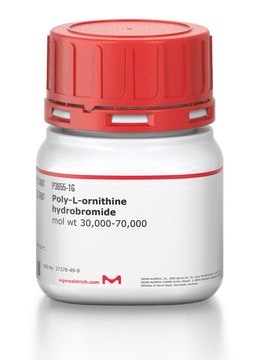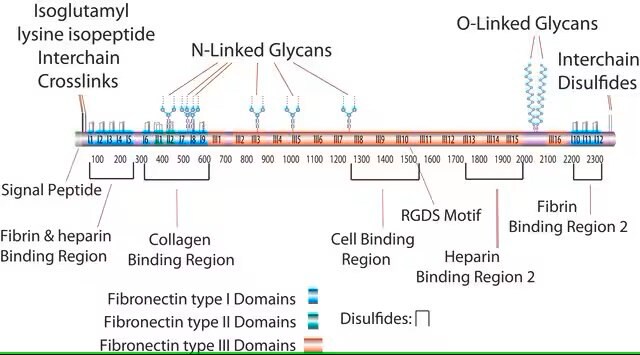S5171
Human Fibronectin
formulated with recombinant human fibronectin fragment III-C expressed in E. coli and fibronectin from human plasma, liquid, 2 mg/mL, suitable for cell culture
Sinónimos:
sFN
About This Item
Productos recomendados
product name
Superfibronectin from human plasma, solution, BioReagent, suitable for cell culture
biological source
human
Quality Level
recombinant
expressed in E. coli
product line
BioReagent
form
solution
mol wt
~235-270 kDa
packaging
pkg of 5 mg
technique(s)
cell culture | mammalian: suitable
surface coverage
1 μg/cm2
UniProt accession no.
shipped in
ambient
storage temp.
2-8°C
Gene Information
human ... FN1(2335)
Application
Components
Caution
Preparation Note
Storage Class
10 - Combustible liquids
wgk_germany
WGK 2
flash_point_f
Not applicable
flash_point_c
Not applicable
Certificados de análisis (COA)
Busque Certificados de análisis (COA) introduciendo el número de lote del producto. Los números de lote se encuentran en la etiqueta del producto después de las palabras «Lot» o «Batch»
¿Ya tiene este producto?
Encuentre la documentación para los productos que ha comprado recientemente en la Biblioteca de documentos.
Los clientes también vieron
Artículos
Enhancing Lentiviral Transduction Efficiency
Fibronectin (FN) is a multifunctional, extracellular plasma glycoprotein produced by hepatocytes that circulates at near micromolar concentration and assembles into extracellular matrix fibrils at cell surfaces along with locally produced cellular FN.
Cancer stem cell media, spheroid plates and cancer stem cell markers to culture and characterize CSC populations.
Extracellular matrix proteins such as laminin, collagen, and fibronectin can be used as cell attachment substrates in cell culture.
Protocolos
Dilute fibronectin to the desired concentration. Optimum conditions for attachment are dependent on cell type and application. The typical coating concentration is 1 – 5 ug/cm2.Fibronectin coating protocol, products, and FAQs.
Nuestro equipo de científicos tiene experiencia en todas las áreas de investigación: Ciencias de la vida, Ciencia de los materiales, Síntesis química, Cromatografía, Analítica y muchas otras.
Póngase en contacto con el Servicio técnico






